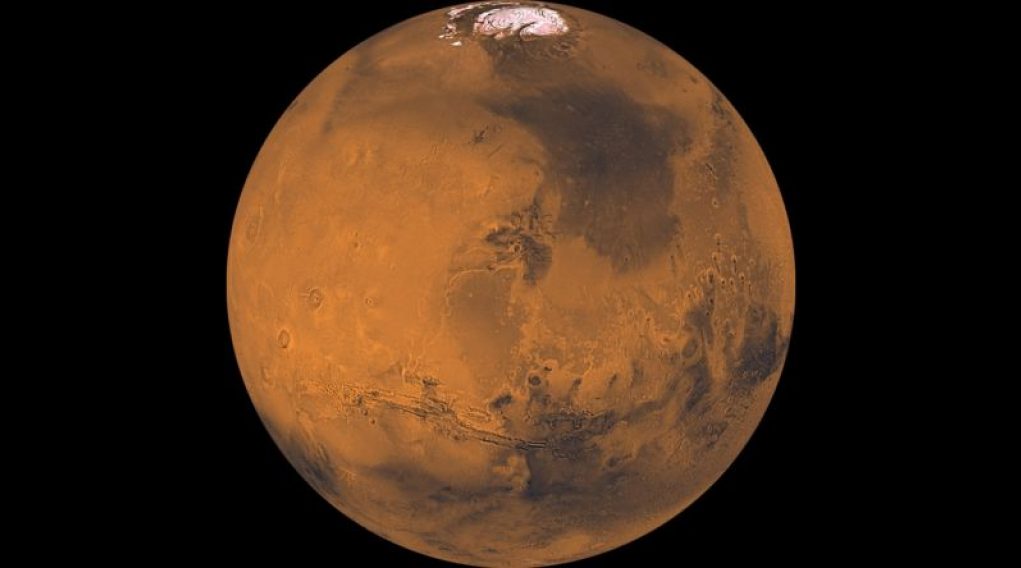The US Senate on Thursday dealt a blow to NASA’s ambitious mission to bring back soil and rock samples from Mars. Instead of the requested $949 million, the Senate proposed a budget of just $300 million and even threatened to withdraw that amount.
The Senate’s Commerce, Justice, Science, and Related Agencies subcommittee expressed concerns about the technical challenges and potential impacts on other missions. The committee report highlighted that Congress has already spent $1.739 billion on the Mars Sample Return mission, but the launch date is expected to be delayed, and cost overruns pose a threat to other NASA science projects.
If NASA fails to assure Congress that the mission’s overall costs will not exceed $5.3 billion, the allocated $300 million will be rescinded. In that case, most of the funds would be redirected to the Artemis Program, which aims to land humans on the Moon.
Big budget
The Senate’s proposed budget follows a recent report by Ars that revealed the escalating costs of the Mars mission. Internally, NASA has been discussing scenarios in which the total mission costs could reach $9 billion. This has raised concerns among scientists, including former NASA science chief Thomas Zurbuchen, who fear that the increasing costs will divert funding from other important scientific endeavors.
Zurbuchen stated, “If the answer is this is not the decade to do it, my heart breaks because I put so much effort into it. But it is better to not do it than to torch the whole science community. We have to have the courage to say no. That’s the only way we earn the right to say yes.”
The Senate’s budget cites a cost estimate of $5.3 billion, as outlined in the planetary science community’s “decadal” survey. However, if the total price exceeds this amount by 20 percent or more, NASA should seek additional funding from Congress. The Senate, however, has taken a firm stance, stating that if the mission cannot be accomplished within the $5.3 billion budget, it should not proceed. This significantly raises the stakes for NASA’s flagship science mission of the 2020s.
What happens now
It’s important to note that this is not the final decision on the budget. The US House will also establish its budget priorities, and then both chambers will negotiate a final budget for the upcoming fiscal year. Additionally, an independent review board led by Orlando Figueroa will assess the sample return mission and provide recommendations for its success. The board’s report is expected to be released in late August or September.
Similar warning signs have been sent to NASA in the past, such as the proposed cancellation of the James Webb Space Telescope in 2011. However, the telescope ultimately received the necessary funding and successfully launched in 2021. Casey Dreier, from The Planetary Society, believes there may be a difference this time, as support for the Mars mission is not as widespread within the scientific community.
Dreier emphasized that The Planetary Society continues to support the Mars Sample Return mission due to its prioritization in the decadal survey. However, they will closely monitor the findings of the independent review board. “Maybe this is the kick in the pants that NASA needs to get this under control,” Dreier added.
The United States Senate has launched a devastating blow to the National Aeronautics and Space Administration (NASA)’s Mars Sample Return (MSR) program. MSR is an ambitious project designed to explore the possibility of retrieving and analyzing samples from Mars. The program has been in the works since the mid-2020s, with planned launches slated for 2031 and beyond.
The Senate’s action comes as part of a $540 billion spending bill meant to address the COVID-19 pandemic. Despite the urgency of the pandemic, the Senate took the time to cut $6 million from the MSR program, reducing the total budget from $1.2 billion to $614 million.
The ramifications of this decision are yet to be fully felt, but it is already clear that the blow to the MSR program could be a significant setback for NASA’s exploration of Mars. The cut drastically reduces the funds available for the program and casts doubts on its feasibility.
This news has sparked a great deal of outrage from scientists, engineers, and the general public. International scientists have criticized the decision, calling it “irresponsible” and a violation of a partnership between countries striving for space exploration. Some have even suggested that the decision could reduce the incentives to collaborate on future projects.
The decision may also come at a disservice to the American taxpayer. Subtracting the $6 million cut, it would take just that much to send two satellites to Mars and collect the first samples, resulting in a better understanding of the planet’s composition.
IAS has already responded with a statement expressing its disappointment and disappointment in the decision, citing the repercussions it might have on the country’s exploration goals.
The future of the MSR program is uncertain. One thing is for sure: the Senate’s vote to slash $6 million from the program is a devastating blow to NASA’s Mars Sample Return program. While conversations are already underway to attempt to reverse the decision, the decision may have long-term implications for American space exploration and scientific research.




















